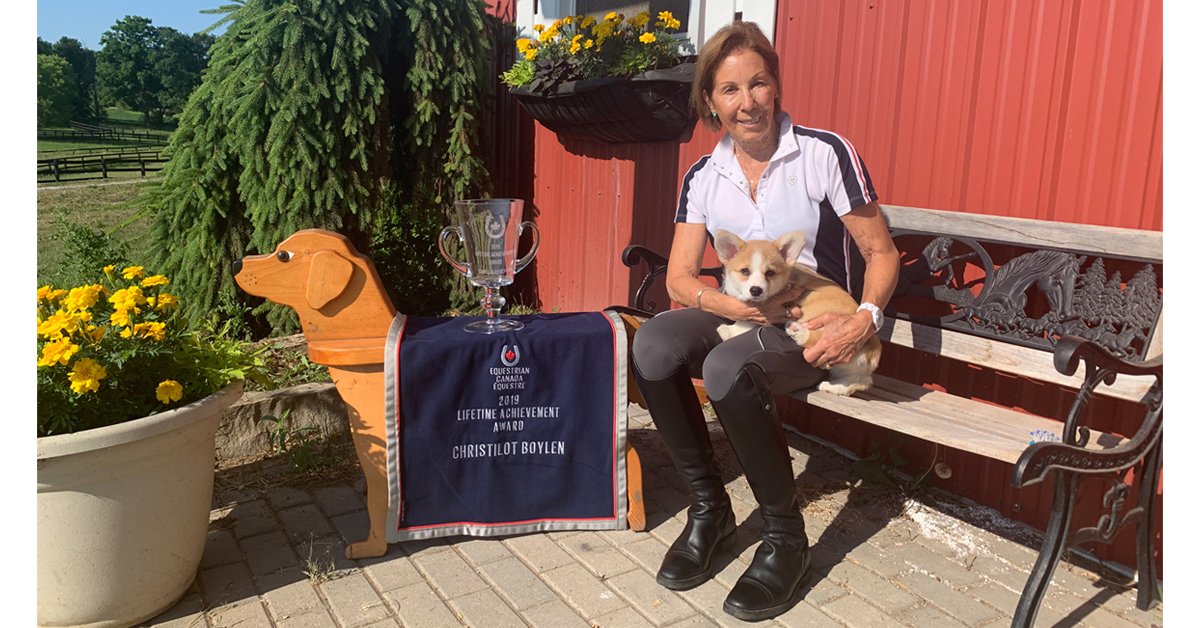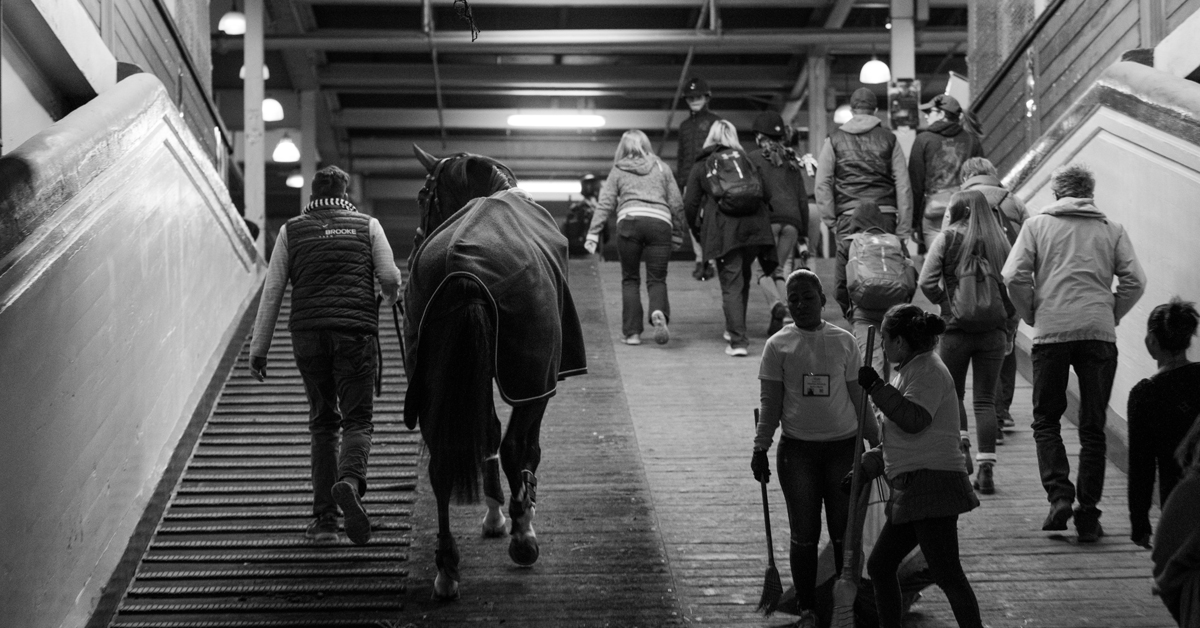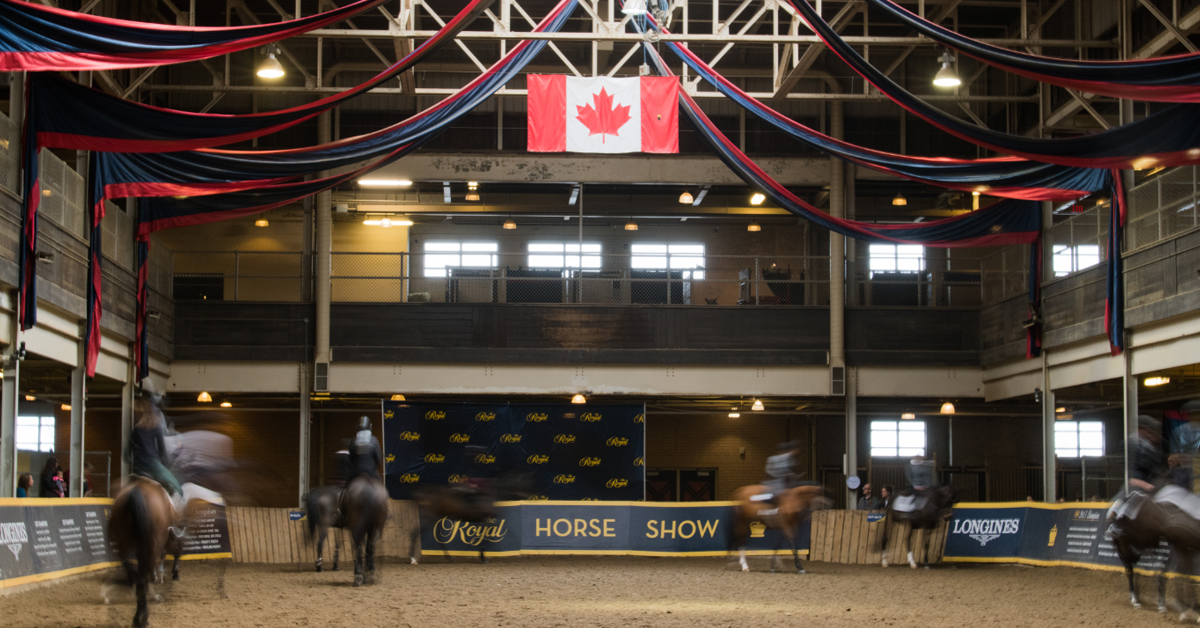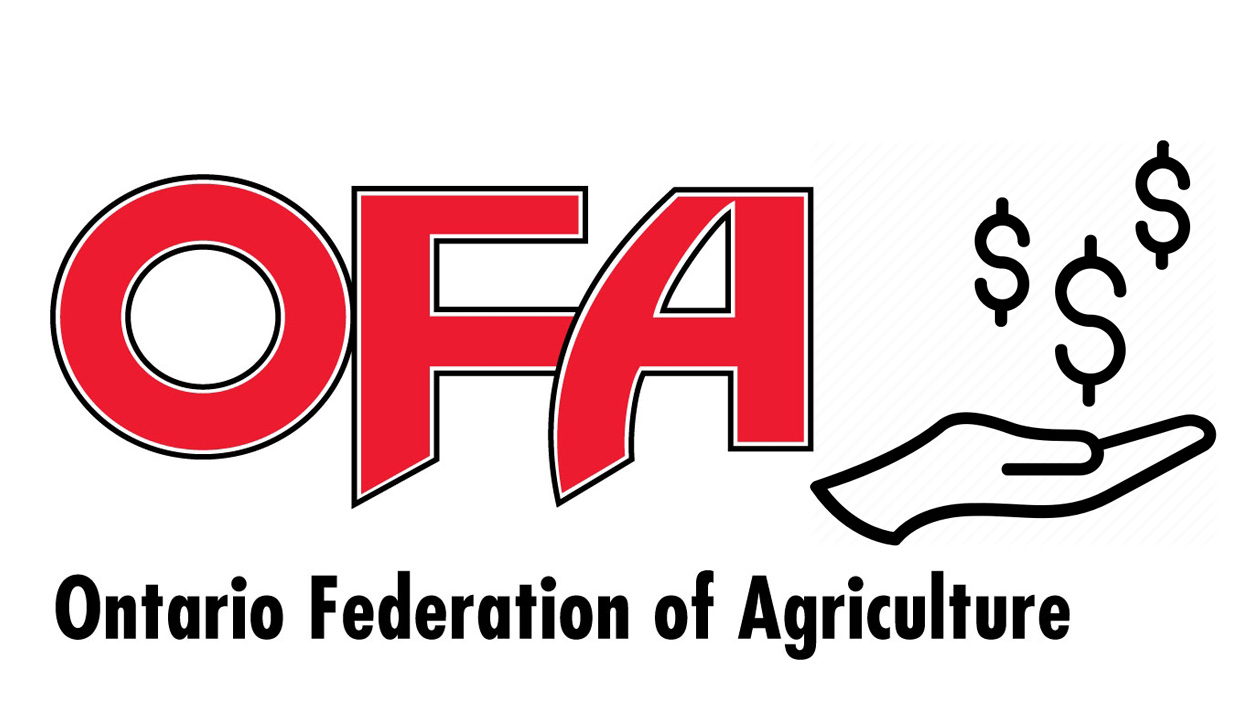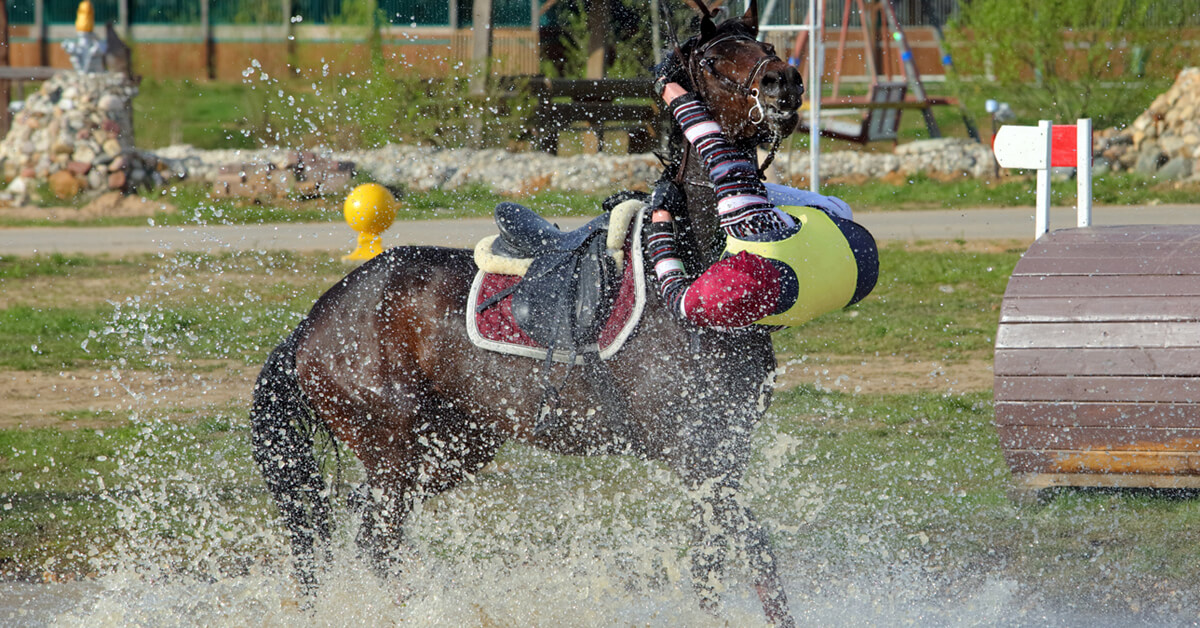National federations have been encouraged to strengthen domestic qualifications and risk-mitigation measures if FEI eventing rules do not address safety concerns in their own countries.
The FEI’s eventing “summit” took place at Aintree Racecourse, UK, last weekend, where poor levels of riding and the widespread practice of premature upgrading were hot topics.
The chairman of the FEI eventing committee, David O’Connor, moderated the three-day conference which attracted 150 senior officials, trainers and course designers from around the world.
The annual percentage of eventing falls worldwide continues to decrease – except at 5* level – due to the many ongoing safety initiatives. But there was a widely shared concern that too many riders thought that attaining the FEI’s Minimum Eligibility Requirement meant they were ready to move up a level without first consolidating experience, especially in countries with limited opportunities to compete.
O’Connor said eventing is “getting close” to the time when it may need to restrict someone’s ability to compete based on statistical data.
O’Connor commended Sam Watson and Diarmuid Byrne of EquiRatings for continuing to “wrap their heads” around performance data and development of systems that, for example, issue an alert when a horse is at risk of falling, with a prompt to drop a level instead. At present, the use of EquiRatings is not formalised within FEI rules; statistical information about starters is provided to the ground jury to use with discretion.
Irish official Andrew Fell cited the pressures some riders feel from owners to upgrade too soon, difficult to resist because as “every owner in the world thinks their horse is the best.” EquiRatings was a good tool to explain to owners when it might be wiser to go down a level.
British trainer Anne-Marie Taylor cited two Indian riders she briefly coached who, as soon as they achieved the MERs entered a four-star in Europe: one had a horse fall, the other three refusals. Had Equiratings applied, they would not have been able to go. Taylor had tried to intervene beforehand, to no avail.
France, which already has a rider-licensing system, has taken the drastic step of insisting that from January 2021 all riders with an amateur licence must name their trainers on entry forms for national events. Without this information, entries will be refused. The named trainer will receive an alert. France’s national qualifications also demand more achievement at the rider’s current level than the FEI equivalents, before he can upgrade.
In Australia, a working group is discussing whether, at events where show jumping follows dressage, a minimum jumping score must be achieved in order to start cross-country.
O’Connor also encouraged national rule-makers not to mirror the FEI’s bar on course designers competing over their own courses, at least at lower levels. That would breach the FEI’s universal conflict of interest rule, but is a deterrent to the next generation of eventing course designers. O’Connor said the eventing committee had argued against it but was “beaten” down by the FEI.
Philine Ganders-Meyer, representing the German federation, said that organisers with “strong” courses should be allowed to impose additional qualification criteria of their own.
How riders could be encouraged to improve their riding skills was a moot point. William Fox-Pitt described the huge difference in attitudes towards learning between the US, where nearly everyone brings their coach to an event, and Britain where “hardly anyone” has one, especially at BE 100 level in which riders prefer the “kamikaze” approach that “you don’t want to watch.”
Jonathan Holling described the US way of looking out for each other at a competition, and not taking offence if someone knowledgeable reports matters of concern back to your coach. “If someone has a bad go, it affects the entire sport worldwide,” he said. “I mustn’t get my back up if someone tells me ‘your student is riding like a sack of you-know-what’.”
Fox-Pitt said there was only one Michael Jung. People who tried to copy his perfection-orientated training methods were not living in the “real world” and should instead aim for a horse that is sharp and reactive.
“Lots of experts can teach you about seeing strides, but in the real world things go wrong and then we need our horses to really help us,” said Fox-Pitt.
“We so quickly focus on skinny roll-tops and precision stuff that we forget to jump banks and ditches on funny terrain.”
Badminton course designer Eric Winter urged people not to forget adjustability in their desire to be Jung. “It’s now the show jumpers who work on feel while the eventers have got more precision in their training. You’ve got no hope, its got to be feel!”
The livestream of selected sessions from the summit is archived here.
More from Horse Sport:
